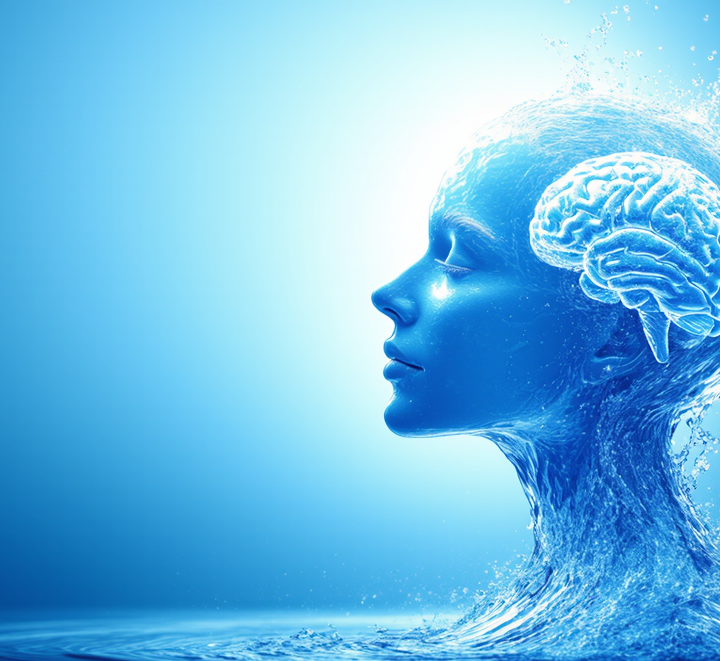Water is the essence of life. Making up approximately 60% of the human body, water plays a crucial role in nearly every bodily function. Yet despite its fundamental importance, many of us fail to consume adequate amounts, leading to a range of health issues that could easily be prevented. This blog post explores why proper hydration matters so much for your overall well-being and how you can ensure you’re getting enough fluids every day.
Table of Contents
How Hydration Affects Your Body
Energy Levels and Physical Performance
When you’re dehydrated, even mildly, your energy levels can plummet. Studies show that losing just 1-2% of your body weight in fluid can impair physical performance. Water is essential for:
- Transporting nutrients to cells
- Maintaining proper blood volume
- Regulating body temperature through sweat
- Lubricating joints
Athletes in particular need to pay close attention to hydration status, as performance can decrease by up to 30% with significant dehydration. But even for everyday activities, proper hydration helps you feel more energetic and capable.
Skin Health and Appearance
Your skin, the largest organ in your body, contains plenty of water and functions as a protective barrier against excessive fluid loss. Proper hydration contributes to:

- Enhanced skin elasticity
- Reduced appearance of fine lines
- A more radiant complexion
- Faster healing of skin issues
While drinking water alone won’t magically eliminate wrinkles, chronic dehydration absolutely contributes to drier, more fragile skin that’s prone to premature aging.
Digestive Function
Water is crucial for proper digestive health. It helps:
- Break down food so nutrients can be absorbed
- Prevent constipation by softening stools
- Transport waste products out of the body
- Support the mucosal lining of the intestines
Without adequate hydration, digestive issues like constipation, acid reflux, and general discomfort become more common.
Cognitive Function
Your brain is approximately 75% water, and even mild dehydration can impair cognitive performance. Research has shown that fluid loss of just 1-2% can lead to:
- Reduced concentration
- Decreased short-term memory
- Difficulty with mathematical computations
- Mood disturbances and increased anxiety
For students and professionals alike, staying hydrated is a simple yet effective way to maintain mental sharpness throughout the day.
Recommended Daily Water Intake
The classic “8×8” rule (eight 8-ounce glasses per day) is a reasonable starting point, but actual needs vary based on several factors:
By Age Group:
- Infants (0-12 months): Breast milk or formula provides adequate hydration; additional water not typically needed until solids are introduced
- Children (1-8 years): 4-5 cups (32-40 oz) daily
- Children/Teens (9-18 years): 7-8 cups (56-64 oz) daily
- Adults (19-64 years): 9-13 cups (72-104 oz) daily
- Older adults (65+ years): 7-8 cups (56-64 oz) daily, though needs may be higher with certain medications
By Lifestyle and Conditions:
- Pregnant women: Additional 1-2 cups (8-16 oz) daily
- Breastfeeding women: Additional 3-4 cups (24-32 oz) daily
- Active individuals: Additional 16-20 oz for every hour of moderate-to-intense exercise
- Hot/humid climate dwellers: Additional 2-4 cups (16-32 oz) daily
- High altitude visitors: Additional 3-4 cups (24-32 oz) daily
Signs of Dehydration
It’s important to recognize dehydration before it becomes severe. Common signs include:
Mild to Moderate Dehydration:
- Thirst
- Dry mouth, lips, and tongue
- Darker urine or reduced urination
- Headache
- Fatigue or sleepiness
- Dizziness
- Reduced skin elasticity
Severe Dehydration:
- Extreme thirst
- Very dark urine or minimal urination
- Rapid heartbeat
- Rapid breathing
- Sunken eyes
- Confusion or irritability
- Low blood pressure
- Fainting
Chronic, mild dehydration can lead to:
- Kidney stones
- Urinary tract infections
- Constipation
- Increased risk of certain cancers (bladder, colorectal)
Healthy Hydrating Drinks
While water should be your primary source of hydration, these alternatives can also contribute positively:
Excellent Choices:
- Herbal teas: Provide antioxidants with minimal or no caffeine
- Infused water: Adding fruits, vegetables, or herbs enhances flavor without calories
- Coconut water: Natural electrolytes make it excellent for recovery after exercise
- Milk: Contains protein, calcium, and is more hydrating than water alone

Good in Moderation:
- Coffee and tea: Count toward fluid intake but have diuretic effects (though less impactful in regular consumers)
- Vegetable juices: Provide nutrients but watch sodium content
- Sparkling water: Good alternative to soda, especially unflavored varieties
Limited Consumption:
- Fruit juices: High in natural sugars; dilute with water or limit to 4-8 oz daily
- Sports drinks: Beneficial during intense exercise lasting >60 minutes; otherwise high in sugar
- Soft drinks: Provide hydration but come with excess sugar or artificial sweeteners
Practical Tips for Staying Hydrated
Maintaining proper hydration doesn’t have to be complicated. Try these strategies:
- Start your day with water: Drink a glass immediately after waking to rehydrate after sleep
- Carry a reusable water bottle: Having water accessible makes you more likely to drink it
- Set reminders: Use smartphone alerts or apps to prompt regular drinking
- Establish routines: Drink water before/during/after meals, when passing a water fountain, etc.
- Eat water-rich foods: Cucumber (96% water), zucchini (95%), watermelon (92%), and bell peppers (92%) all contribute to hydration
- Monitor urine color: Aim for light straw to transparent yellow
- Prepare for exercise: Hydrate before, during, and after physical activity
- Adjust for conditions: Increase intake during illness, hot weather, air travel, or altitude exposure
The Hydration-Diet Connection
Proper hydration works synergistically with a balanced diet:
- Metabolism: Water is required for the metabolism of proteins, carbohydrates, and fats
- Nutrient absorption: Many nutrients are water-soluble and require adequate fluid for transport
- Appetite regulation: Thirst is sometimes misinterpreted as hunger
- Weight management: Drinking water before meals may reduce calorie intake
Interestingly, about 20% of our daily water intake comes from food. Water-rich fruits and vegetables not only help with hydration but also provide essential nutrients and fiber.

Long-Term Benefits of Optimal Hydration
Maintaining proper hydration throughout life contributes to:
- Kidney health: Proper fluid intake reduces risk of kidney stones and infections
- Heart health: Adequate hydration helps maintain blood pressure and cardiac function
- Joint preservation: Well-hydrated cartilage reduces friction and joint pain
- Detoxification: Water helps the liver and kidneys filter waste products
- Temperature regulation: Proper hydration supports the body’s cooling mechanisms
- Immune function: Mucous membranes in respiratory and digestive tracts need adequate hydration to trap germs
Conclusion
Hydration is not merely about quenching thirst—it’s a fundamental aspect of health that affects every system in your body. From cognitive function to physical performance, digestion to skin appearance, proper hydration enables optimal functioning across the board.
The good news is that improving hydration doesn’t require expensive supplements or complicated regimens. Simply increasing your water intake, being mindful of dehydration signs, and incorporating hydrating foods can make a significant difference in how you feel day-to-day and in your long-term health outcomes.
Make proper hydration a priority, and your body will thank you with improved energy, better mental clarity, enhanced physical performance, and potentially even a longer, healthier life. In a world of complex health advice, staying hydrated remains one of the simplest, most effective ways to care for your body.





